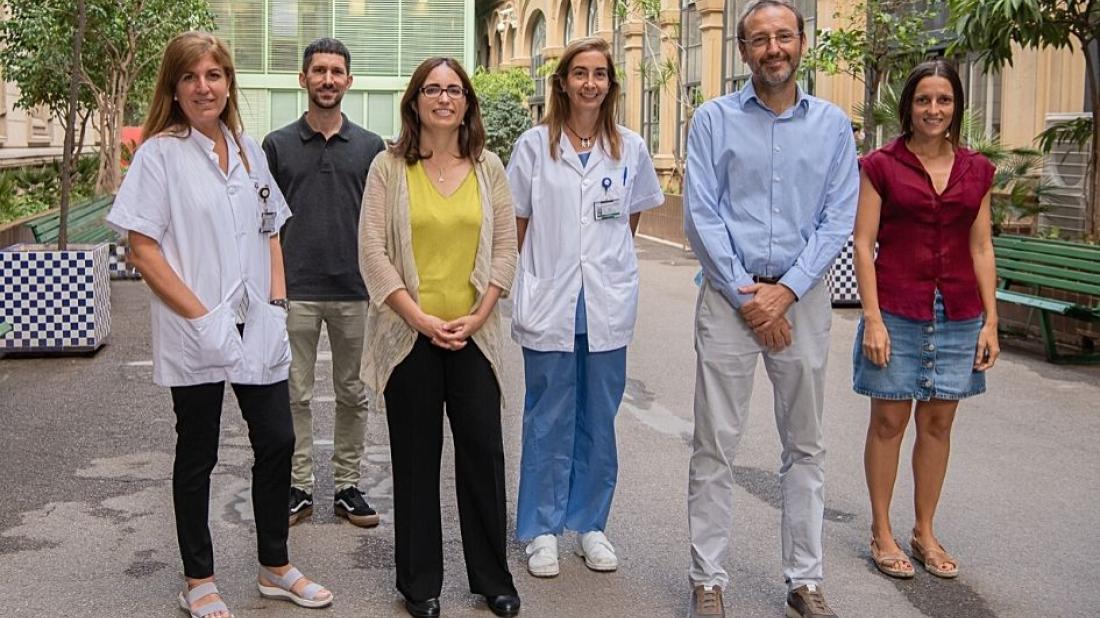Low birth weight induces changes to the heart that persist at adult age and limits capacity for exercise

The promotion of healthy lifestyle habits especially in this group can significantly reduce the risk of cardiovascular problems.
A study coordinated by researchers at BCNatal-IDIBAPS, and published by the journal JAMA Cardiology, shows that people born with a low birth weight present differences in the structure and functioning of their heart and have less capacity for physical activity than other people when they are adults.
These differences may explain why people born with low birth weight have more cardiovascular problems in adulthood, such as being three times more likely to have a heart attack in adulthood.
The study was led by Fàtima Crispi and Eduard Gratacós, from the Department of Maternal-Fetal Medicine and Obstetrics at the SJD Barcelona Children's Hospital, BCNatal (Sant Joan de Déu - Clínic) and the IDIBAPS Fetal and perinatal medicine group.
It also involved the participation, among others, of researchers from the Institut Clínic Cardiovascular, the Institut Clínic Respiratori, the IDIBAPS Cardiac imaging and Translational computation in cardiology research groups and researchers from the Universitat de Barcelona, Universitat Pompeu Fabra, the Barcelona Supercomputing Center and Philips Research France. The project also benefited from the support of the Fundació La Caixa, the Carlos III Health Institute, the European Commission, CEREBRA, CIBERER and AGAUR.
Low birth weight and cardiovascular risk
People who were born with low birth weight (those in the first decile, i.e. out of all births, the 10% of babies that were born with the lowest birth weight) experience more cardiovascular problems when they are adults. For example, they have up to three times more probabilities of suffering a myocardial infarction.
To date, the reason for this was unknown, and it was considered that it might be due to higher rates of heart attack, obesity, hypertension, stroke, diabetes or metabolic syndrome.
The research team led by Gratacós, Director of BCNatal, was the first to demonstrate, in previous studies, that an important part of the problem is the heart itself. “We saw that the hearts of children with a low birth weight present differences in function and in structure, and that these differences that appear in the fetal stage persist until adolescence”.
It was still necessary to find out whether the changes in the heart’s structure and function persist in adult age and this was what was studied in the work published in JAMA Cardiology. “It is a pioneering study, which combines highly sophisticated computerised analysis techniques to analyse the shape of the heart using magnetic resonance imaging and a stress test”, explains Marta Sitges, director of the Institut Clínic Cardiovascular, head of the IDIBAPS Cardiac imaging group and co-author of the study.
People were selected aged between 20 and 40 years who had been born with low birth weight or with normal birth weight. To locate them, the delivery books from the SJD Barcelona Children's Hospital from 20 to 40 years ago were reviewed. Based on the date of birth and the mother’s surname, it was possible to contact some of the individuals, and the proposal was made to them to participate in the study.
Participation consisted of 158 adults, of whom 81 had been born with a low birth weight and 77 with a normal birth weight. They underwent a cardiac MRI and a stress test using a bicycle.
Differences in cardiac structure and response to stress
“The cardiac MRI showed that people who had been born with low birth weight show significant changes in their heart structure at adult age. Their right ventricle had a different shape”, explains Fàtima Crispi, BCNatal senior specialist physician and scientific coordinator of the Fetal and Perinatal Medicine research group at IDIBAPS.
It was also found that they have a lower exercise capacity, i.e. they are not able to generate as much power on the bike and get tired earlier. "This doesn't mean that they can't exercise, but quite the opposite", Crispi explains. "They may simply not have as much capacity as the rest of the population and get tired earlier".
It was also observed that changes in the heart are more noticeable in people who smoke, are overweight or sedentary.
For Gratacós, "this research once again demonstrates the importance of fetal medicine in the prevention of adult pathologies. If we identify fetal growth problems in pregnancy and promote healthy habits from childhood, we will avoid the consequences that fetal problems can have in adulthood," he concludes.
A recent study by the same research group has shown that being born at low birth weight multiplies the risk of severe COVID-19 by three.



